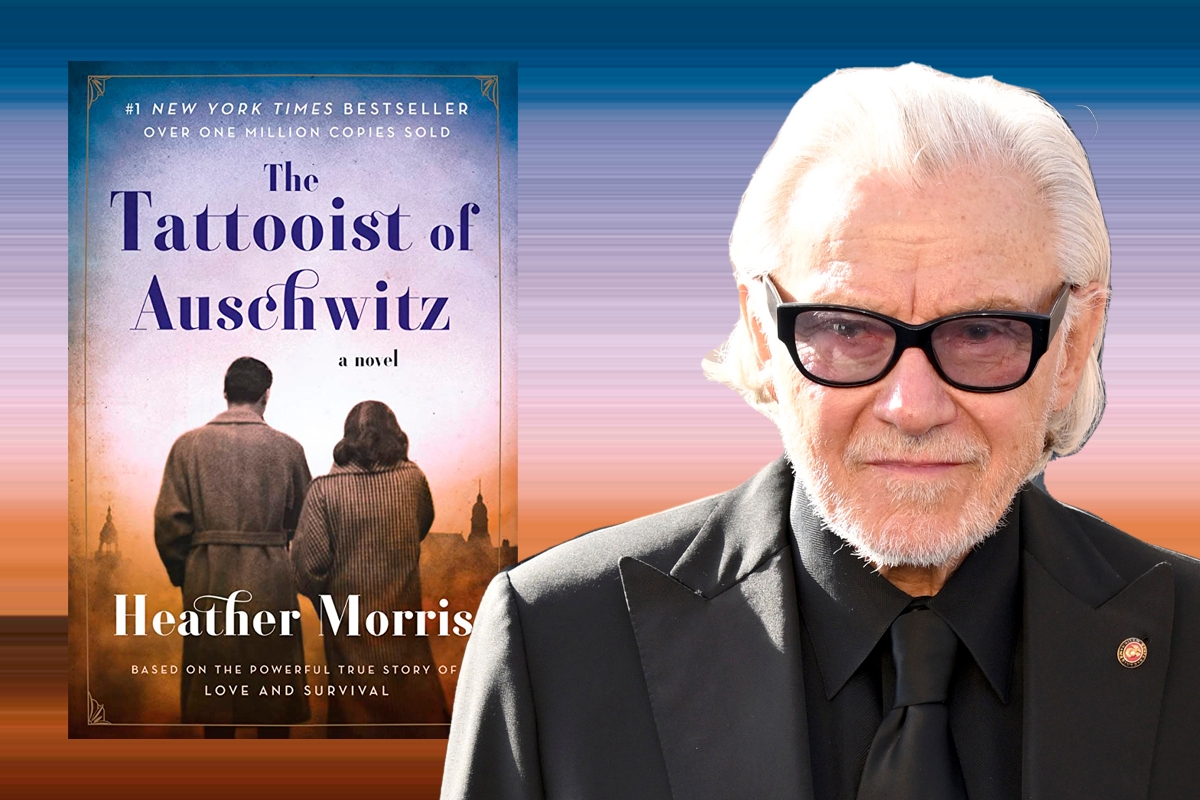From “Poker Face” to “The Gentle Art of Swedish Death Cleaning,” Peacock TV has been bringing us a lot of excellent TV, and in 2024, it is taking on a newly popular TV trend: the limited Holocaust series.
Next year, along with Sky TV, Peacock will be bringing us a television adaptation of the bestselling novel “The Tattooist of Auschwitz.” The book is based on the life story of Lali Sokolov, a Jewish Auschwitz prisoner who became the tattoo artist of the Nazi concentration camp, where he met the great love of his life, Gita Furman. The 2018 book, by Heather Morris, who met Sokolov in 2003 after Gita’s death, has sold around 12 million copies world-wide.
Tali Shalom-Ezer, who directed the multi-award winning 2014 movie “Princess” starring Shira Haas, will be sitting in the director’s chair. Shalom-Ezer is a daring and exciting choice for this project. She is a veteran of exploring sensitive and painful topics on screen — from sexual assault to the death penalty to sex surrogates and mental illness. The six-episode series will be her first Holocaust-related project.
The cast is quite star-studded. Harvey Keitel will play the elder Sokolov, while live-action “The Little Mermaid” star Jonah Hauer-King will play a young Sokolov. Polish actress Anna Próchniak will play Gita. Jonas Nay, star of the “Deutschland” TV franchise, will play SS Guard Stefan Bretzki. Melanie Lynskey will play Morris herself. Lynskey, like Morris, is originally from New Zealand.
“In Auschwitz, a factory of death and dehumanization, Lale and Gita’s love story is an act of defiance,” Shalom-Ezer said about the project. “It is the choice to remain human. I’m inspired and honored to bring this story to life, alongside the talented team of people assembled.”
Hauer-King, whose Jewish grandparents escaped Warsaw in the 1930s, said “these scripts heartbreakingly and vividly depict this appalling time in our history, and I feel proud to be honoring Lale and Gita’s remarkable journey.” Próchniak called the role “one of the greatest honors of [her] career so far, as well as a heartrending experience.”
According to a recent interview with Hauer-King, the show has been shooting in a re-creation of the harrowing camp in Bratislava — the same city where Gita and Lali found each other after the war — since late last year. The actor said he lost weight for the role, and that shaving his head to play Sokolov has been emotional. “I’ve not had time to make sense of it,” he recently said of this heavy project. “I stayed in that headspace … It was easily the most challenging job I’ve ever done.”
Lali Sokolov was born Ludwig Eisenberg in 1916. He arrived at Auschwitz in 1942, where he met his wife Gita Furman, and became one of the camps’ Tätowierers. He changed his name to a more Russian-sounding one to assimilate in postwar Europe before he moved to Melbourne in 1948, where he opened a clothing factory. Gita died in 2003, and it was after her death that Sokolov met Morris and told her his story. He passed away at age 90 in 2006.
Documented claims from the Sokolovs, their son and other sources, negate some of the the accounts Morris unravels in the book — from their Auschwitz serial number, to the date that they entered the camp, to the way the couple met in the concentration camp. The Sokolovs’ son, Gary, does not seem to be involved in the show; he has said that he was bothered by the fact that his father’s name, Lali, was spelled in the book as Lale. Some reviewers of the book have noticed historical discrepancies, as well, like the use of penicillin. And while Lali is portrayed as a miracle worker who does generous things to help other prisoners, the reality was more complex. As historian Peter Black told the New York Times in 2019, prisoners like Lali, who “were in a position to help people, were also in a position to hurt people… they had to accept that duality.”
The stepchildren of Cilka Klein, who we meet in “The Tattooist of Aushwitz” and whose story Morris told in her second novel, “Cilka’s Journey,” were even more dismayed by the portrayal of the woman in the book, who they didn’t recognized as their own stepmother.
It’s also worth noting that Morris is not Jewish — but the forthcoming show will feature a Jewish showrunner and ample Jewish actors.
Many televisions shows, from Amazon Studios’ “Hunters,” to Netflix’s “Transatlantic,” to Disney+ and NatGeo’s “A Small Light,” have tried to play the balance of historical facts and the makings of compelling TV in narrative Holocaust series. Yet I don’t think any show is going to be as evocative about the question of balancing fact and fiction as this one, posing a whole new set of questions in this time when the number of Holocaust survivors dwindle: Who owns their stories? Who can capitalize on them? And what is the spirit of remembrance that we fostering with these kind of books and films? Is a nebulous idea of “never forget” more important than being faithful to the details of the stories of these people’s lives?
“The Tattooist of Auschwitz” is slated to come out sometime in 2024, and with an already excellent team behind it, it is bound to make for very compelling television — but one has to wonder how, or if, it will answer these complex questions.








